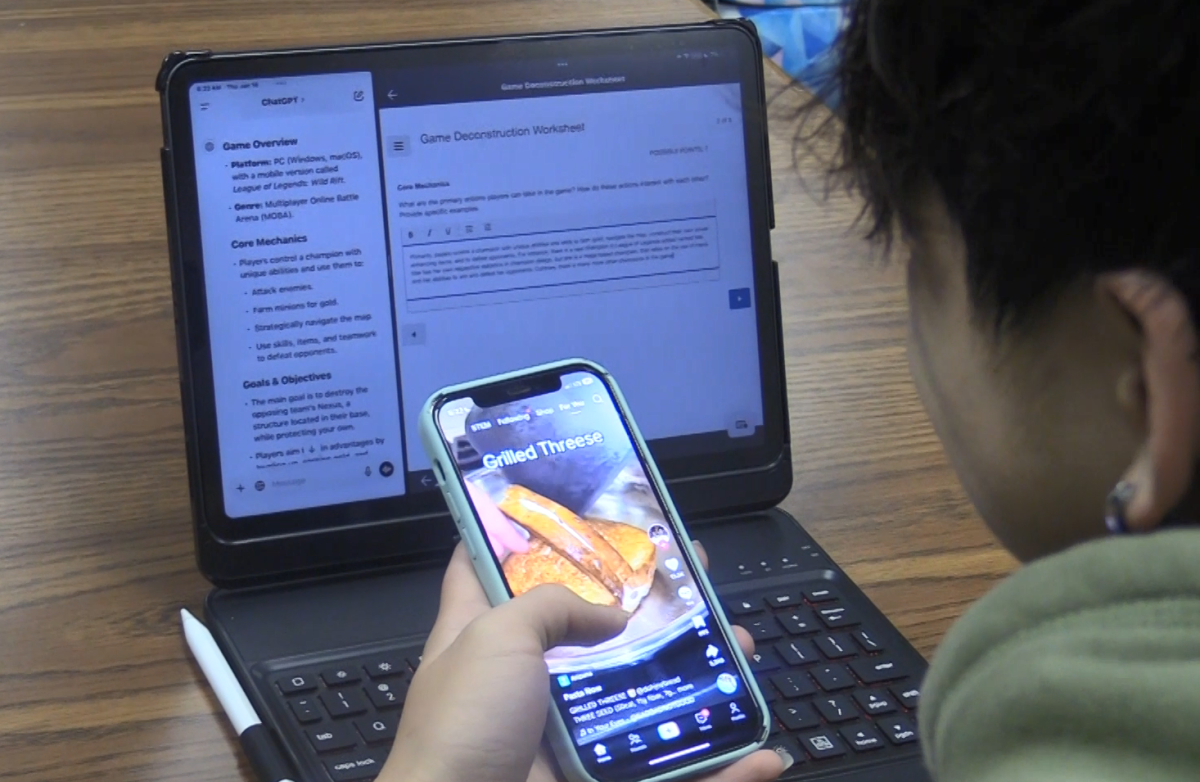 School districts across Texas are scrambling to plan their budgets for next year as major educational budget cuts are being proposed at both the state and federal level.
School districts across Texas are scrambling to plan their budgets for next year as major educational budget cuts are being proposed at both the state and federal level.
Though cuts in education to the state biennium budget have drawn interest from news publications, Principal Greg Freeman said that the proposals are nothing new.
“In the past there’s been talk about budget cuts, and we’ve had some tight years, so this is not anything new,” Freeman said. “It’s never been as bad as anyone has said it’d be.”
Beginning each school year in the past, the district gave each campus a per-pupil allocation fund, with high schools receiving $107, middle schools $96, intermediate $92, and elementary $88 along with district and campus grant funds.
The first draft for the state’s two-year budget could reduce next year’s district budget by $26 to 47 million, but Sarah Winkler, Alief School Board secretary, said that such cuts would likely not happen.
“I do not believe that the first draft of the proposed budget will be adopted,” Winkler said in an email interview. “This is the worst-case scenario that does not include using any rainy day funds, accounting maneuvers, increased fees, etc. that will likely be implemented to try to mitigate the cuts.”
Winkler predicted Alief’s budget will not be significantly impacted.
“Since we likely will not know the magnitude of the cuts in time to materially affect next year’s budget, students should not see drastic changes next year,” Winkler said. “I believe that most cuts would take place in the second year of the biennium. It is much too soon to identify specific reductions that might take place.”
Interventionist Eugene Miller, who maintains the Distance Learning Lab, said cuts in the state biennium budget could impact online courses in the Virtual School Network.
“It could have a secondary impact on the summer,” Miller said. “[The state] has allotted a certain amount of money to offset some of the cost of kids taking [summer] online courses. We have close to 200 students participating, and 6,000 is the most they’ve ever had.”
Miller said he has heard from the Virtual School Network that the Robert Scott, Commissioner of Education, has not yet decided whether such funding will be available for this year’s online summer classes. Miller said he expects to be notified of Scott’s decision by the end of the month.
Alief officials are also concerned about federal funding, which comprised an unusual 27 percent of the operating budget last year due to funds from the American Recovery and Reinvestment Act, or the “economic stimulus,” Winkler said. In the past, the majority of federal funds came from the Elementary and Secondary Education Act (ESEA), also known as Title I, the Individuals with Disabilities Education Act (IDEA), and the National School Breakfast and School Lunch Program.
Winkler attended a conference in Washington, D.C., in mid-February to discuss issues in federal funding.
“The purpose of the conference was to brief board members from all over the country about a number of federal funding and accountability issues,” Winkler said. “Some of these include… the reauthorization of ESEA, issues regarding IDEA and new federal laws for the School Breakfast and Lunch Program.”
Cuts have been proposed for both the ESEA and IDEA. Winkler said these programs had already been underfunded in the past, and issues with the No Child Left Behind Act also need to be addressed.
“Students may be interested to know that the ESEA funding supports the NCLB mandates from the federal government,” Winkler said. “NCLB needs to be reauthorized this year and we are hoping to get some much needed changes to the federal accountability system.”
Although Title I grants are meant to be a significant factor in helping district meet No Child Left Behind standards, Winkler said the federal government is still providing inadequate funds. IDEA, which was created to offset 40 percent of the cost of educating students with disabilities “also is grossly underfunded,” Winkler said.
Many school districts used last year’s stimulus funds to offer more job positions, but because these newly hired personnel were paid from these funds, districts are considering laying off these personnel as an option to offset the educational budget cuts.
The state was also ineligible for the proposed Education Jobs Fund Act, which would provide $10 billion to states’ educational personnel costs. Funds from this program are intended to help school districts create more jobs and secure those currently at risk.
“Texas was unable to get the money since a specific amendment was added to the legislation requiring Governor Perry to make certain assurances before the $830 million was released to our state,” Winkler said. “We definitely wanted to talk to legislators about getting this money released to Texas districts.”
Although Freeman received notice that jobs at Kerr will not be impacted, the district currently has a hiring freeze in place. Winkler said that the proposed state biennium budget cuts would have a significant effect on Alief jobs.
About 89 percent of Alief’s budget is for personnel, Winkler said, and the district could see some personnel cuts in the future; but because teachers and administrators have employment contracts, there are limits on what personnel cuts can be made.
“In my opinion, it is unlikely that we will have sufficient information in time to drastically affect next year’s budget. Legislators know that and will likely adopt a budget that puts more of the funding reductions in the second year of the biennium.”
Despite most of the state biennium cuts likely occurring during the second year, Winkler said that the district still needs to secure funding for next year.
“It is important to have the appropriate amount of money in the fund balance for several reasons,” she said. “We use that money to cover expenditures when we are waiting for our local tax dollars, and state and federal funding. It is not a good idea to use fund balance monies to pay recurring expenditures, but it would be OK to cover a onetime shortfall with part of the money.”
Miller said that students need to know that although the state legislature is “completely unpredictable,” students could still take action to influence the state biennium budget.
“What students could do is find out who their representatives are in the state legislature and contact them and tell them how important the Texas Virtual School Network or funding for Houston Community College from the state, how important that is to them and their family and them being able to have some upward mobility,” Miller said. “But sending them an email or signing some form letter, they’re not the best thing to do. The best thing to do is to call them. Call them and call them and call them. The more calls they get from their constituents, expressing concerns, then that systemic risk of not being reelected, which is one of their top motivations, might help with putting pressure so that when the smokes clears at the end of the day, they haven’t screwed up things too badly.”
Winkler said that legislators don’t realize how significant periodic budget cuts are.
“Legislators may think that they can make cuts this session and then come back the next session and restore the funding if more money is available. It is not that simple,” Winkler said. “Once programs are cut, they cannot simply be restarted. Our students cannot afford to lose two years of their education… Some students’ educational careers could be profoundly affected. For this reason, students would be outstanding advocates for public education.”
Texas-based news publications have focused more on the state biennium budget cuts, but Winkler said that securing federal funding for the district is also significant.
“It is an uphill battle at the federal level just as it is at the state level. New congressmen were elected in November who promised to cut spending so reductions in education funding have been proposed at the national level just as they have in Texas,” Winkler said. “We are going to have to work to educate our federal representatives and senators about how we use the federal dollars and how students will be affected if cuts are made.”
Categories:
Possible educational budget changes are under close watch
March 7, 2011
Story continues below advertisement
0
Tags:
Donate to Kerronicle
$0
$700
Contributed
Our Goal
Your donation empowers the student journalists of Alief Kerr High School. With your help, we can continue producing meaningful stories and quality content just like this. Every contribution goes toward purchasing essential equipment and covering our annual website hosting fees.






